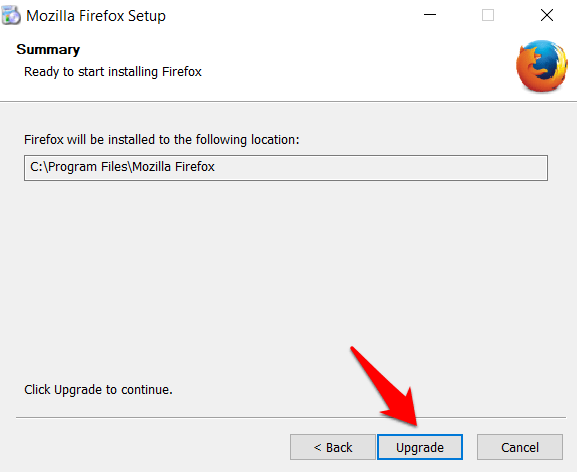

Mozilla is working to address this and will be reaching out to impacted developers.

Brief firefox old versions windows#
The browserSettings API is the best example of this, where an extension may make changes to the general behavior of Firefox, including how private windows behave, without needing permission to access private windows.įinally, there is a known issue where some extensions that use the ttings API require private browsing permission to use that API even in normal windows (all other proxy API work as expected). Note that some WebExtension API may still affect private windows, even if the user has not granted the calling extension access to private windows. You can use the extension.isAllowedIncognitoAccess API to determine whether users have granted your extension permission to run in private windows. If your extension depends on access to private windows, it is important to communicate this to your users, including the reasons why access is needed. On the detail page, the user can choose to either allow or disallow the extension to run in private windows.įinally, to make sure that users of private windows are fully aware of the new extension behavior, Firefox will display a message the first time a user opens a new private window.Īs a developer, you should take steps to ensure that, when the user has not granted your extension permission to run in private windows, it continues to work normally. To change the behavior and either grant or revoke permission to run in private windows, the user can click on an extension’s card to bring up its details. The lack of a badge indicates that the extension is not allowed to run in private windows and will, therefore, only run in normal windows. In addition, for each extension that is allowed to run in private windows, the Add-ons Manager will add a badge to the extension’s card indicating that it has this permission, as shown below. This banner will remain in Firefox for at least two releases to make sure all users have a chance to understand and get used to the new policy. First, a banner at the top of the page describes the new behavior in Firefox. There are significant changes to the Add-ons Manager page (about:addons), too. Only newly installed extensions will be excluded from private windows by default and subject to the installation flow described above. To avoid potentially breaking existing user workflows, extensions that are already installed when a user upgrades from a previous version of Firefox to version 67 will automatically be granted permission to run in private windows. The post-install door hanger, shown after an extension has been installed, now includes a checkbox asking the user if the extension should be allowed to run in private windows. Starting with release 67, any extension that is installed will be, by default, disallowed from running in private windows. There are significant changes in Firefox’s behavior and user interface so that users can better see and control which extensions run in private windows. Note that Chrome’s split value for incognito is not supported in Firefox at this time. Depending on what features your extension provides, using not_allowed might be an easy way to guarantee that your extension adheres to the policy. The Mozilla Add-on Policies require that extensions not store browsing data or leak identity information to private windows.

As with Chrome, specifying not_allowed in the manifest will prevent the extension from running or receiving events from private windows. Going Incognitoįor extension developers, Firefox now fully supports the value not_allowed for the manifest `incognito` key. Starting with release 67, though, both developers and users have ways to specify which extensions are allowed to run in private windows. Prior to this release, all extensions ran in all windows, normal and private, which wasn’t in line with Mozilla’s commitment to user privacy. The biggest change in release 67 is Firefox now offers controls to determine which extensions run in private browsing windows. One is in the current Beta 67 release, while the other in the Nightly 68 release, but is covered here as an early preview for extension developers. There are a couple of major changes coming to Firefox.


 0 kommentar(er)
0 kommentar(er)
